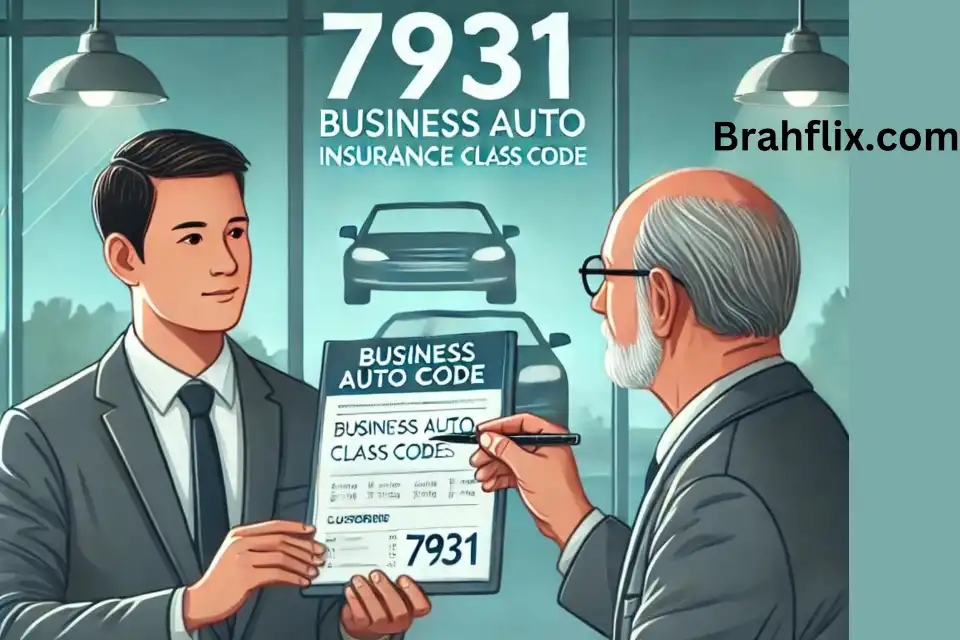Introduction
The 7931 Business Auto Class Code is a crucial identifier for businesses, especially those dealing with commercial auto insurance. Business owners need to be aware of this classification as it directly affects their insurance policies, premium rates, and risk management strategies. This guide delves into the ins and outs of the 7931 code, offering insights into how it applies to different industries, the impact on insurance costs, and how to ensure your business is correctly classified.
Key Takeaways:
- The 7931 Business Auto Class Code affects businesses involved in commercial auto insurance.
- Proper classification can lower costs and improve risk management.
- Insurance companies rely on these codes for accurate risk assessment.
- Misclassification can result in higher premiums or inadequate coverage.
What is the 7931 Business Auto Class Code?
The 7931 Business Auto Class Code is part of a classification system used by insurance companies to assess the risk associated with commercial vehicles. It falls under the Standard Industrial Classification (SIC) system, helping insurers evaluate the nature of a business’s operations, its exposure to risk, and the types of vehicles used. Companies dealing with deliveries, trucking, or other transportation services commonly fall under this category.
Importance of Business Auto Class Codes
These codes help insurance companies categorize businesses based on the risk they pose when insuring commercial vehicles. For instance, companies that operate heavy-duty trucks may have higher risks than businesses with smaller delivery vehicles. Proper classification is critical for determining the appropriate level of coverage and premium rates.
Key statistic: Companies that accurately classify their vehicles using the correct business auto class code can save up to 20% on premiums, according to insurance industry studies.
How the 7931 Business Auto Class Code Affects Insurance Premiums

Insurance premiums for commercial auto policies are primarily determined by the level of risk involved in a company’s operations. The 7931 Business Auto Class Code helps insurers assess that risk. Businesses classified under this code typically have higher risk exposure due to factors such as:
- Types of Vehicles: Larger, more complex vehicles like trucks pose greater risks than smaller cars.
- Frequency of Use: The more frequently a business uses its vehicles, the higher the risk of accidents or damage.
- Distance Traveled: Long-distance travel increases the risk of vehicle wear and accidents, influencing insurance premiums.
Insurance Premium Factors
There are several components that factor into determining insurance premiums for businesses classified under 7931:
- Vehicle size and weight
- Frequency of trips
- Employee driving records
- Accident history
Tip: To minimize insurance costs, businesses should ensure their employees have a clean driving record, as insurers heavily weigh driving history when determining rates.
Understanding the SIC System and Business Auto Classifications
The Standard Industrial Classification (SIC) system assigns codes like 7931 to businesses based on their primary activities. The SIC code 7931 is specifically related to businesses involved in transportation services, particularly those requiring the use of commercial vehicles.
How SIC Codes Benefit Businesses
Using the correct SIC code helps businesses maintain proper documentation for tax purposes, insurance, and legal compliance. Insurers use these codes to understand the types of risks they’re underwriting, allowing for more accurate policy pricing.
Common Industries Under the 7931 Business Auto Class Code
Several industries fall under the 7931 Business Auto Class Code, particularly those that use vehicles extensively for business operations. These include:
- Trucking and Freight: Companies transporting goods across the country.
- Delivery Services: Businesses delivering packages or food.
- Construction Companies: Firms using heavy-duty vehicles like cranes and trucks.
Industry-Specific Considerations
Different industries face varying levels of risk depending on the types of vehicles used and the nature of their business. For example, trucking companies may face higher risks due to long-distance driving, while local delivery services might encounter more accidents due to frequent stops and starts in congested areas.
Statistic: The transportation industry has a 33% higher risk of vehicle-related accidents compared to other industries, highlighting the importance of proper classification and coverage.
Benefits of Proper Classification for Your Business
Getting classified under the correct business auto class code ensures that your insurance premiums accurately reflect your business’s level of risk. Misclassification can lead to overpaying for insurance or, even worse, insufficient coverage.
Benefits of Proper Classification:
- Cost Efficiency: Reducing unnecessary costs associated with misclassification.
- Accurate Coverage: Ensuring that your business is adequately protected in case of accidents.
- Legal Compliance: Avoiding potential fines or penalties for improper classification.
Recommendation: Business owners should consult with their insurance provider to ensure that their vehicles are classified correctly under the 7931 Business Auto Class Code. Regular reviews of insurance policies are recommended to ensure accuracy as the business grows and changes.
Common Mistakes Businesses Make When Classifying Vehicles
Mistakes in classifying business vehicles can be costly. Some common mistakes businesses make include:
- Classifying Based on Vehicle Size: While the size of a vehicle is a factor, it is not the sole determinant of classification.
- Failing to Update Vehicle Records: As businesses grow, they may acquire more vehicles. Failing to update your classification can lead to under-insurance.
- Overlooking Industry-Specific Risks: Some industries have unique risks, such as hazardous material transportation, that require specialized classifications.
How to Ensure Your Business is Classified Correctly
To avoid errors, business owners should work closely with their insurance agents and provide detailed descriptions of their business activities and vehicle usage. Regularly reviewing insurance policies ensures that any new vehicles or changes in business operations are accurately reflected in your classification.
Steps to Ensure Proper Classification:
- Provide accurate business activity descriptions.
- Keep detailed records of vehicle usage.
- Regularly update your insurer on changes in business operations.
Tip: Regularly audit your vehicle usage and business activities to ensure they align with your current classification and insurance coverage.
FAQs
What happens if my business is misclassified under the wrong auto class code?
Misclassification can lead to higher premiums or inadequate coverage, potentially leaving your business vulnerable in the event of an accident.
How do I know if my business falls under the 7931 code?
If your business uses commercial vehicles extensively for transportation, delivery, or freight services, it likely falls under the 7931 Business Auto Class Code.
Can my business’s classification change over time?
Yes. As your business grows or changes its operations, your classification may change. Regularly review your insurance policy to ensure you’re correctly classified.
Conclusion
The 7931 Business Auto Class Code plays a vital role in determining commercial auto insurance premiums for businesses involved in transportation services. By ensuring your business is correctly classified, you can manage costs and ensure adequate coverage. Regular reviews of your classification and insurance policy will help you stay compliant and protected as your business grows.
Call to Action: Are you confident your business is classified correctly? Review your classification today and ensure you’re getting the best insurance rates possible. Explore our other blogs on business insurance for more insights.


